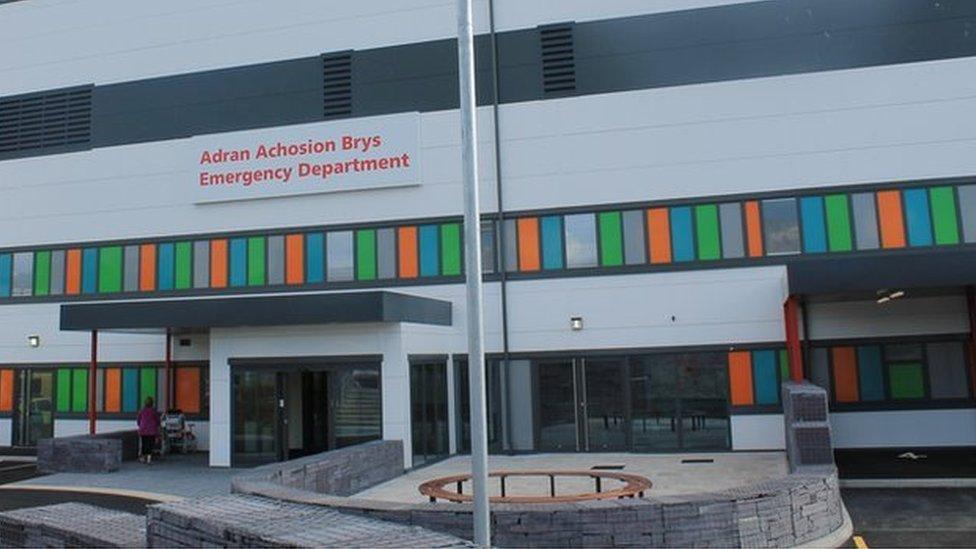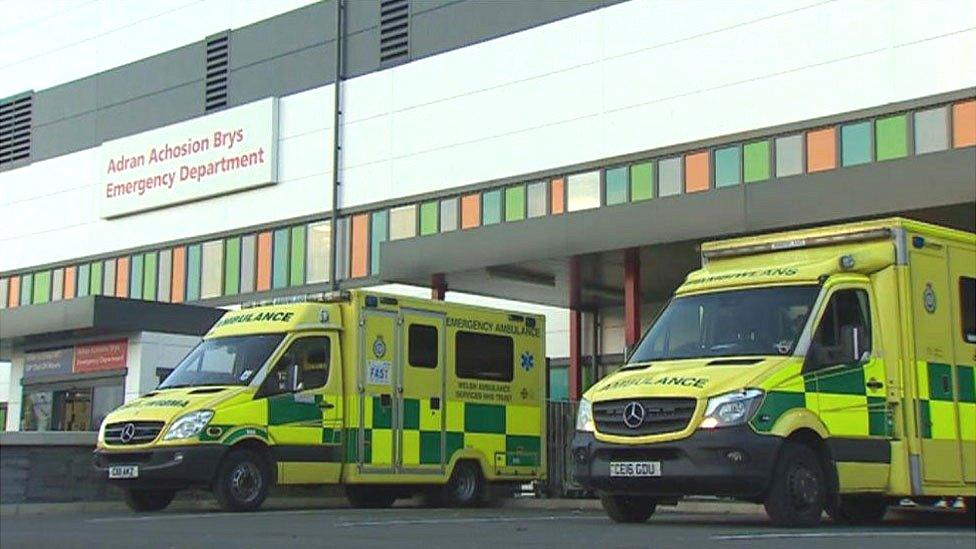Warning after Lily Baxandall's death following A&E wait
- Published

A coroner will issue a prevention of future deaths report after a woman died following a five-hour wait in an ambulance outside A&E.
John Gittins concluded Lily Baxandall, 95, died from a bleed on her brain and pneumonia as a result of a fall at her Abergele home on 1 September 2014.
But he said it could not "become the norm" that ambulances were routinely parked up outside hospitals.
Mr Gittins said improvements had since been made but challenges remained.
He recorded an accidental death conclusion.
He will write to Betsi Cadwaladr University Health Board, the Welsh Ambulance Trust, north Wales' four councils and the Welsh Government asking them to outline what they are doing to ensure the flow of patients on admittance, discharge and back into the community.
Mr Gittins told an inquest in Ruthin: "If we allow these problems to continue... there is a danger future deaths will occur...
"But there'll be a level of culpability touching on either civil or criminal responsibility... that is not a risk I would wish to see."
The inquest heard Ms Baxandall was conscious when she was taken to Denbighshire's Ysbyty Glan Clwyd, but deteriorated in the ambulance which was held in a queue of 11 vehicles.
She arrived at the hospital with a head injury and bruising to her face at about 16:50 BST but was not admitted until 21:40.

In a statement to the inquest, her great niece Dr Kate Thomas said her aunt was initially fully conscious and able to hold a conversation, but her condition got worse as time went on.
She said it was clear to her there had been a bleed on her brain, but she felt it was too late to give treatment to reverse the blood thinning effects of the warfarin she was taking for a heart condition.
Treatment was stopped the next day and Ms Baxandall died on 5 September.
Frances Millar, who was the on-call matron that night, said it was a very busy day that became an "exceptional night", with hospitals in Wrexham and Bangor also full.
She said the situation got worse and later in the night 13 ambulances were queuing to drop off patients and more staff were called in.
"Everybody was working very, very hard," she said, adding she could not see what could have been done differently.
Adam Griffiths, head of nursing for unscheduled care at Glan Clwyd Hospital, said things had improved, with better patient flow through A&E, but they were still "nowhere near" where they want them to be.
"I aspire to not having any ambulances waiting. We try to get out there in 15 minutes with a triage nurse, and then consultant in 30 minutes," he said.
"Ms Baxandall would have been seen in 15 minutes had she been brought in now."
He added north Wales' three hospitals hold conference calls three times a day so diversions can be made if necessary.
But he said nurse recruitment and delays in transferring patients to relevant social care providers once they are medically fit remained a problem.
- Published25 March 2015
